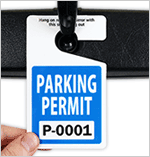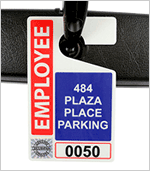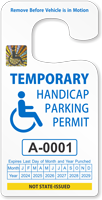Public employees gaming TN’s disabled parking system, say officials
When the Tennessee General Assembly meets in January, it will reconsider overturning a law that distinguishes it from other states: allowing local governments to charge disabled motorists a fee for parking on any municipally owned or leased street, metered space, or lot. Suspicious numbers of applicants from public employees at the Knox County City/County Building, which includes an 868-space parking garage for city and county workers in downtown Knoxville, are prompting the reconsideration.
Officials noticed a marked increase in the number of applications for disabled parking spaces from the county’s public employees when parking prices began to rise. It used to cost $30 per month to park in the garage, but about five years ago, a committee of city and county officials concluded that the fee fell well below the parking spots’ market rate. They recommended raising it over several years, but officials in late 2012 refused to go beyond the current $47.50 charged per month because county employees had gone years without an increase in pay, they said.

As parking costs went up, Knox County officials noticed a suspicious uptick in demand for accessible parking. From Knox County Tennessee Government.
Dale Smith, executive director of the Public Building Authority, the quasi-governmental agency that manages the City County Building garage, sent a memo to county managers, listing those employees who had disability parking hangtags. The numbers seemed high to him, and “that’s when we go some pretty strong reactions” from department heads who knew which staff on the list were not physically disabled, he said.
“Nobody was trying to play doctor,” said Smith. “Neither I, nor the mayors, nor the finance directors are trying to outguess physicians.”
The system doesn’t allow officials to revoke the hangtags once a doctor has approved the necessary paperwork, however. And some physicians approve permits for conditions not officially recognized as disabilities by the Americans with Disabilities Act (ADA), such as pregnancy. In some cases, physicians have also allowed employees to check the box on the form that marks whether the disability is temporary or permanent.
Once the doctor has signed the form, municipalities must comply and provide the hangtag that provides the driver free parking. “There’s no way to appeal it,” said Smith. “There’s no way to have it reviewed in any formal way.”
Stephanie Cook, ADA coordinator for Knoxville, believes that the free parking “could incentivize a person to maybe seek a hangtag or plate that they may or may not need.”
Cook, a paraplegic who is a permanent user of a wheelchair and who has her own marked parking spot, continued, “I hate that accessible parking is free. I have an issue with ‘free’ equaling ‘special.’”
Local leaders believe that, by making parking fees a requirement across the board, gaming the system will no longer be possible. The change would pad public coffers (by at least $43,000 annually) and prevent some workers from circumventing others who have had to park elsewhere as they waited for coveted spots to open in the City County Building.
State Rep. Ryan Haynes, R-Knoxville, said that he wants to talk with organizations that work with the disabled but that his colleagues are likely to consider the change to state law and to provide local governments the option to charge for parking in accessible spots.
“Ultimately, the City County Building should be run by the City of Knoxville and the county,” he said. “They should be able to make these decisions for themselves.”
Related Posts
Category: Handicapped parking, Parking management





















